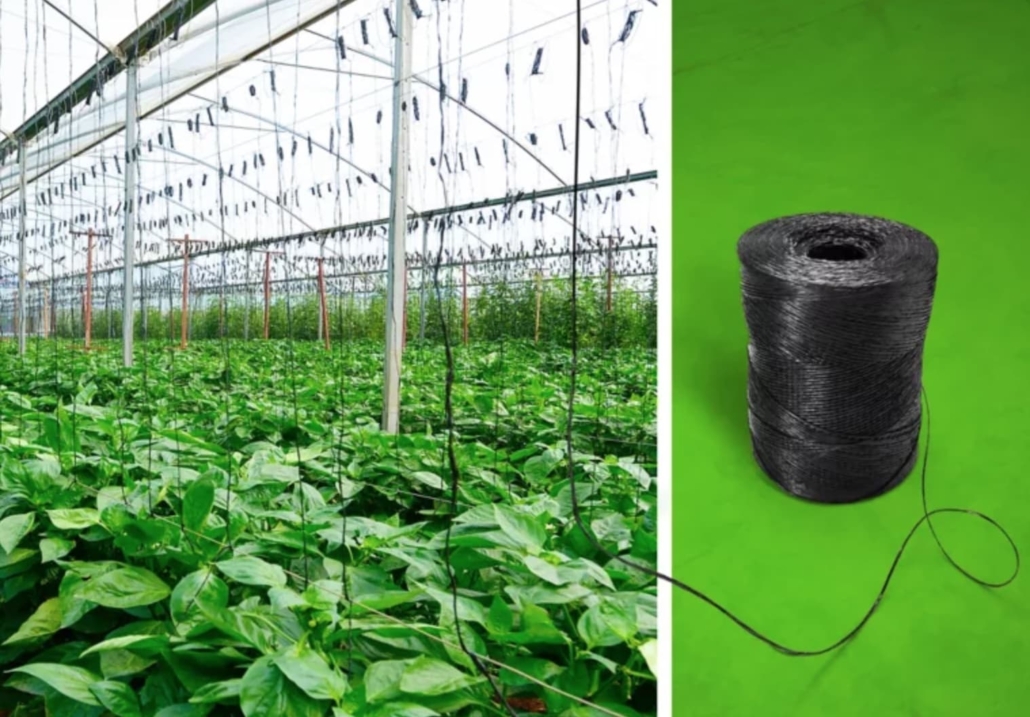BASF introduces industrially compostable twine for greenhouse crop production
BASF has expanded its ecovio® biopolymer line to include a new grade, T 2206, certified industrially compostable per EN13432. This material can be used to manufacture black twines for supporting climbing fruits and vegetables like tomatoes and cucumbers in commercial greenhouse operations.
Supporting circular agricultural practices
After the growing cycle, the twines made from ecovio T 2206 can be collected along with the plant residues and sent to an industrial composting facility, where they will biodegrade. This end-of-life solution avoids the release of microplastics that would occur with conventional plastic twines. Instead, the nutrient-rich biomass can be recycled into valuable compost, supporting circular agricultural practices.
Trials demonstrate ecovio T 2206 twines perform excellently throughout crop growth in greenhouses across diverse climates. For growers, the compostable twines eliminate the labour of separating them from plant matter post-harvest. Manufacturers benefit from being able to produce these twines on standard polypropylene equipment.
Agricultural mulch films
In addition to the T 2206 twine grade, BASF offers ecovio M 2351, a soil-biodegradable material per EN 17033 designed for agricultural mulch films. These films fully degrade in soil from microbial action, avoiding microplastic accumulation. They provide benefits like higher yields, reduced water/herbicide needs, and easier removal compared to polyethylene mulch films.
The ecovio line, a blend of BASF’s PBAT ecoflex® and renewable materials, is certified compostable per EN13432 standards. Studies show ecovio reduces food waste, returns nutrients via compost, and prevents microplastics in soil – furthering a circular bioeconomy through organic recycling channels for products like bags, films, and foodservice items.
- For more information visit: ecovio.basf.com and www.biopolymers.basf.com



